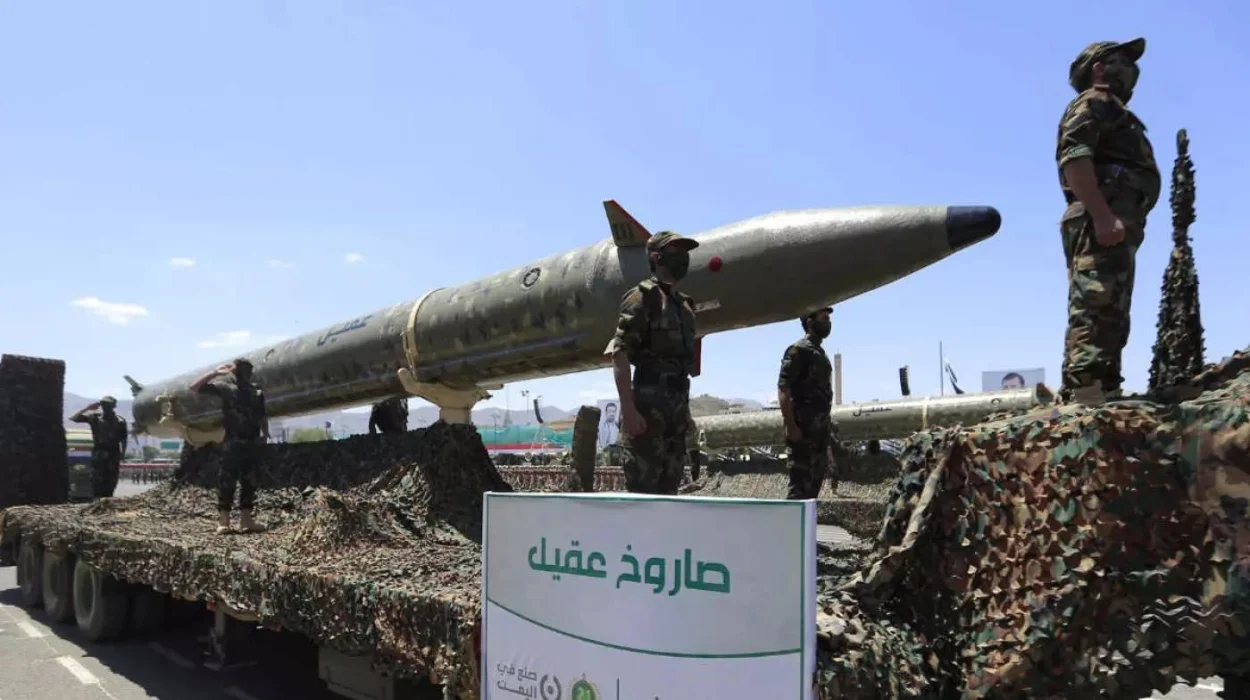US defence and intelligence officials are increasingly alarmed that an Israeli invasion of Lebanon could escalate regional tensions, potentially drawing in Russia and solidifying its military cooperation with Iran. This concern stems from recent intelligence assessments suggesting that Moscow is contemplating enhancing its support for Iran’s network of allies in the region, known as the Axis of Resistance.
Russian Arms Support for Houthis
A senior US official has indicated that Russian President Vladimir Putin has sought permission from Saudi Arabia to supply Yemen’s Houthi rebel fighters with cruise missiles. This revelation comes amidst fears that an Israeli ground attack on Hezbollah could trigger a stronger military alliance between Iran and Russia. “If Israel attacks inside Lebanon, it would likely prompt a further deepening of the military relationship that Iran has with Russia to help Hezbollah defend itself,” stated William Usher, a former senior Middle East analyst at the CIA.
Saudi Concerns and Diplomatic Maneuvering
Providing arms to the Houthis poses more significant diplomatic risks for Russia than supporting Hezbollah, especially considering its efforts to cultivate relationships with oil-rich Gulf states. According to US intelligence, Saudi Crown Prince Mohammed bin Salman intervened to prevent Putin from transferring missiles to the Houthis. The discussions occurred after Putin’s December 2023 visit to Saudi Arabia and the UAE, during which both leaders agreed to mitigate tensions in the region.
A Shift in Russian Strategy?
Historically, Russia has bolstered its military ties with Iran, purchasing thousands of Iranian drones and seeking assistance in developing its own drone capabilities. However, if Moscow begins arming members of Iran’s Axis of Resistance, it would mark a significant shift in its foreign policy approach. This change could be motivated by a desire to impose costs on the US and its allies amid the ongoing conflict in Ukraine.
The Houthi’s Need for Advanced Weaponry
Experts suggest that the Houthis, who primarily rely on drones and ballistic missiles, would benefit significantly from the introduction of cruise missiles into their arsenal. Fabian Hinz, a ballistic and cruise missile expert, noted that supersonic cruise missiles would be a priority for the Houthis, and Russia has advanced models that could meet this demand.
Rising Tensions in the Red Sea
Houthi attacks on commercial vessels in the Red Sea have surged recently, claiming to act in solidarity with Palestinians in Gaza. Such actions pose challenges for the Biden administration, which is trying to contain the conflict in Gaza from expanding. US officials reported a recent Houthi attack on a Greek-owned vessel, highlighting the growing maritime threats in the region.
Implications for US-Russian Relations
Former US officials, including General Frank McKenzie, have drawn connections between the situation in Ukraine and developments in the Red Sea. “Putin could see doing something in the Red Sea as payback,” McKenzie remarked, referencing the US’s involvement in Ukraine. As Russia navigates its diplomatic ties with Gulf states, it seeks to exploit tensions in the Middle East while avoiding further isolation.
Conclusion: A Balancing Act for Russia
While Russia is keen on leveraging the situation to challenge US interests in the region, it is also careful not to alienate crucial partners like Saudi Arabia. The ongoing conflict has significant implications for regional stability, and the potential for increased Russian involvement could complicate an already volatile situation. As the dynamics unfold, all eyes will be on how these geopolitical tensions evolve and what they mean for the future of US and Russian relations in the Middle East.


